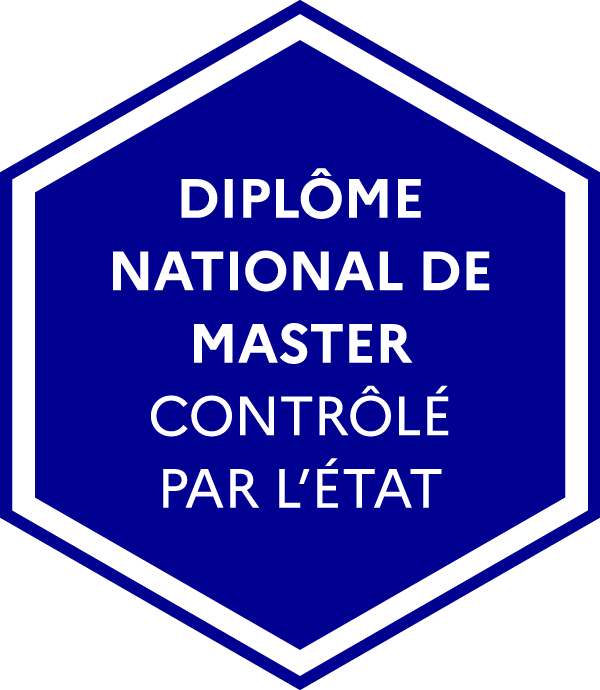Overview
Master
- Degree awarded Master
- Mention
- Electronics - Energy Electric - Automatic
- Duration
1 or 2 years starting in October
Summary
Cities are experiencing profound technological changes in terms of power supply, with smart grids and buildings fast becoming essential links to pro-active consumers. This Master course backs onto the outstanding scientific and technological environment of Grenoble in the field of energy.
Objectives
The general objective is to acquire the high level of scientific knowledge and skill required to managethe full energy chain (production, distribution, use) in relation to economic, human and social factors. The course aims to develop the skills needed to work as part of a versatile team, as well as the creaticity and adaptability required as part of an evolving career path.Our course will enable you to
- design, analyze, model, solve and operate a complex energy system, taking into account both the energy chain as a whole (production, distribution, use), local policies.
- develop diagnostic techniques and solve complex problems by selecting and mobilizing the best analytical, numerical or experimental tools.
- work as part of a complex international and multicultural team.
- conceive and manage inter-disciplinary, research or industrial projects in an international context.
- develop innovative ideas, test and implement breakthrough technologies, while being sensitive to environmental, societal and human constraints
- anticipate future needs, such as emerging energy markets,to propose socially and culturally suitable regional solutions based on new technological advances.
-
Training partners
EntreprisesALSTOM, AREVA, CEGELEC, EDF, FORCLUM, Gaz de France, GEG, INEO, MGE/UPS, PSA, RENAULT, RTE, SCHNEIDER ELECTRIC, SUEZ, VINCI, ...
Admission
Entry requirements
Requirements
- Bachelor degree in either Science (BSc) or Engineering (BEng), including courses in electrical engineering
- English language: B1 level. TOEFL: computer-based: 140 / IBT: 60 / paper-based : 457. TOEFL institution code is 6050, Department : Ense3
- TOEIC : 550 - IELTS: 4.5
- Application deadline : April 15th
Tuition fees
4 250 Euros / year : regular students
Industrial and institutional grants may be available for excellent students
Industrial work placements (mandatory internships) in companies are paid.
12 000 euros/year as a lifelong learning course (if your last year in higher education was over two years ago)
http://master-smartgrid-energy.grenoble-inp.fr
Program
- Course duration
1 or 2 years starting in October - Internships abroad
Program
Our master provides a solid background in the engineering expertise required to manage the full energy chain (production, distribution, use) sensitively to environmental and societal aspects. Our aim is to train high level master students,able to respond to the challenges of this fast-evolving field.
International
- Language of instruction English 100%
- Internship abroad Yes
International mobility
97.5% foreign students
Scholarships
You can find all the funding schemes available for your course in Grenoble on the CampusFrance website.
- Rhône Alpes, Eiffel and Grenoble INP Fundation Scholarships
- LANEF scolarship
International research facilities
Minatec, ESRF, ILL
Prospects
Expected learning outcomes
Typical career profiles
- Project engineer
- Development or research engineer
- Business or consultant engineer
- Exploitation engineer
Industrial sectors
This master aims to offer solutions to the European Commission’s 2020 objectives in terms of energy
- 20% reduction in greenhouse gas emissions compared to 1990,
- 20 % increase in energy efficiency,
- 20 % renewable energies in the total mix (33 % for electricity).
Further learning opportunities
After the master, students are encouraged to pursue a PhD as part of our specialized doctoral school
Our course provides two opportunities for research-based work experience : a short-term internship at the end of year 1, and a 5 month work placement at the end of year 2.
Our course provides two opportunities for research-based work experience : a short-term internship at the end of year 1, and a 5 month work placement at the end of year 2.
French State controlled Master's degree

Financial support
Master website
Head of admissions/office mail
You want to know more ?
Academic contact
For all questions (in particular administrative matters):
Raphaël Caire
admission.ense3@grenoble-inp.fr
Raphaël Caire
admission.ense3@grenoble-inp.fr
International Students and Scholar Offices - ISSO
Your contacts for academic information
Raphaël CAIRE : +33 4 76 82 63 61




